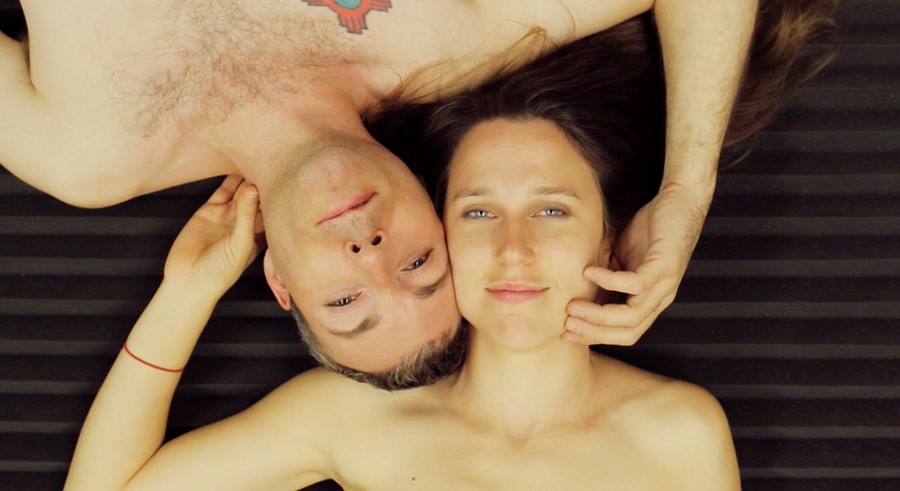Josephine Decker and Zefrey Throwell captured their love affair on film, from romantic start to heart-rending finish – and as of this week, you can watch it too
By their nature, documentaries have shown us some of history’s most harrowing, brutal, and vulnerable moments, from personal histories to expositions of larger societal concerns. But watching Flames feels like something below your consciousness is being struck, where a trove filled with repressed memories is suddenly re-discovered.
The project emerged from the meeting of filmmaker, actor, and artist Josephine Decker, and fellow artist Zefrey Throwell. A whirlwind romance began, lasting for almost a year from 2011 to 2012. The pair then decided to make a documentary about their relationship, and its ultimate end.
“Josephine and I had just fallen in love, like really passionately in love, so much so that we waited to have sex,” Throwell tells AnOther. “Which is a rare thing, right? Especially when the passion is on you, and you want it very badly.” His emphasis on the passion is palpable, comical. It’s obvious he understands both the excitement and cruelty of love, which Flames renders through a non-chronological narrative that saw the couple revisiting the footage in the cutting room.
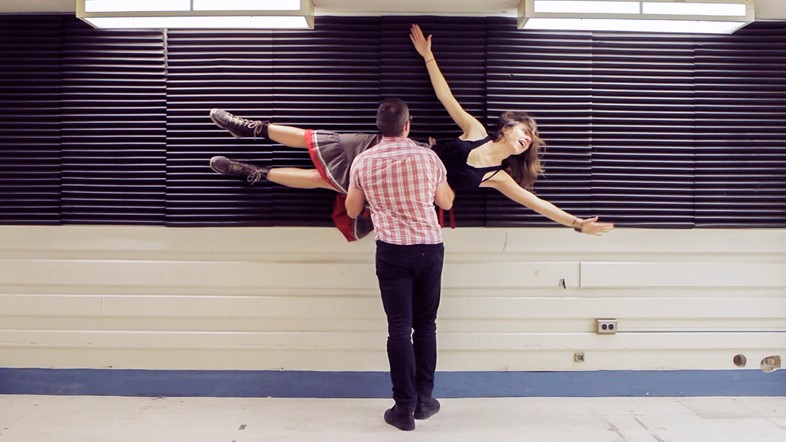
Growing up in Texas, Decker reveals that although her parents were fairly liberal, there was a noted repression around sexuality during her upbringing. “I just couldn’t have a real conversation, even with my close girlfriends,” she says. The film is a recovery of this absence of sexual expression, and includes female pleasure; Throwell agrees that there is a lapse in discussions on female pleasure in contemporary discourse. While, for her part, Decker acknowledges that this absence is rooted in an avoidance of any discussion to do with emotion in her early family life, she admits that she could fit the criteria of an emotional exhibitionist.
And it’s not hard to dismiss that emotional exhibitionism, in our contemporary moment, is often negatively critiqued – but Decker depicts it knowingly and with artistic strategy. Likewise, her first narrative feature films, 2013’s Butter in the Latch and 2014’s Thou Wast Mild and Lovely, are two intimate, forthright explorations of vulnerable subjectivities and repressed impulses unearthed. This January, her third feature film, Madeline’s Madeline premiered at the Sundance Film Festival, earning critical acclaim.
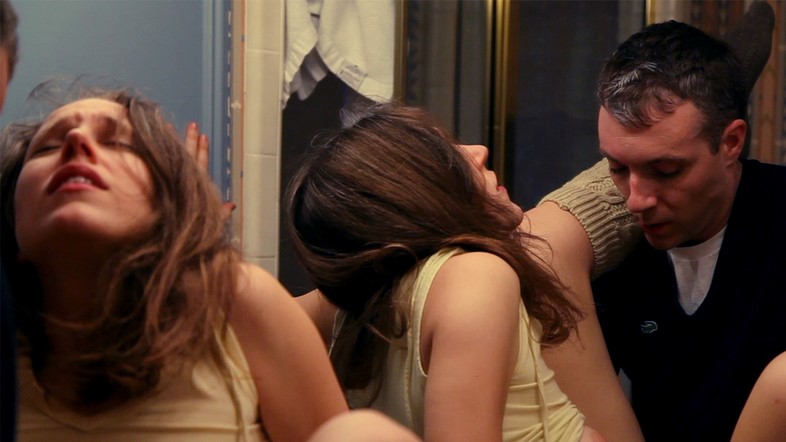
Both Decker and Throwell have explored the accessibility of the body, and its material and ecological vulnerability, in other media, too. Decker’s 2010 performance art piece Spillover, a simultaneous response to the BP oil spill, featured six performers in Times Square moving in slow motion in a circle with buckets of mock oil on their hands, accentuated by their clothes which would become darker on each day, and sporadic breaks in which a bucket would tip over and spill its contents.
In 2011, Throwell organized the site-specific performance art work Ocularpation: Wall Street, in which 50 participants, dressed as workers from disparate fields – like a stock trader, a janitor, a prostitute, and a dog walker – removed all of their clothes while in the vicinity of the New York Stock Exchange. Throwell dressed as a hot dog vendor, telling the new York Times that the performance art piece was “an absurdist Freudian nightmare”.
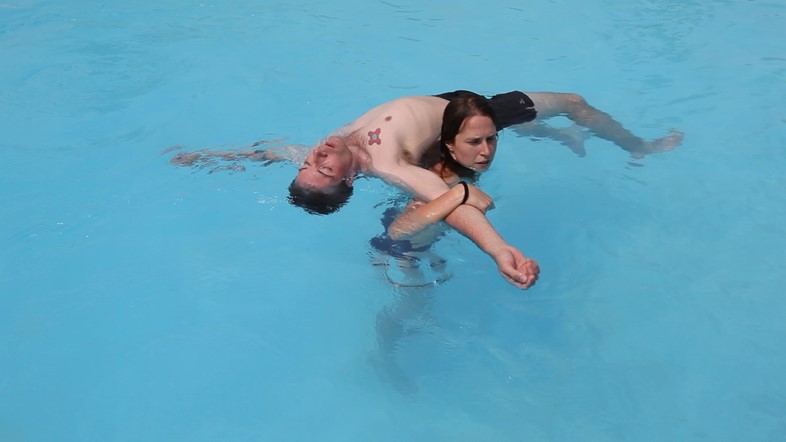
Speaking of Freud, much of Flames’ fidelity to real life stems from the unfettered vulnerability that both Decker and Throwell exhibit, rather than repress. For Throwell, it’s the brazen anger he occasionally directs at Decker, which is normal in relationships, but socially risky to publicly display. In Decker’s case, there is a lot of crying, and the camera chronicles her storming off from a public argument. The aesthetics of these typically off-scene moments of everyday life, particularly in a romantic context, recall the strategies employed by the Direct Cinema movement of the 1960s.
Given the transparency of such a cinematic aesthetic, like that of Direct Cinema, were Decker and Throwell worried that planning a documentary like this would put a death sentence on their relationship? Throwell roars with surprised laughter at the question. “No, at the time it was really therapeutic,” Decker explains. “The first few shoots we did were really ways of working through moments that we didn’t agree with, and then the filming was actually a way of seeing it from the other person’s perspective.”
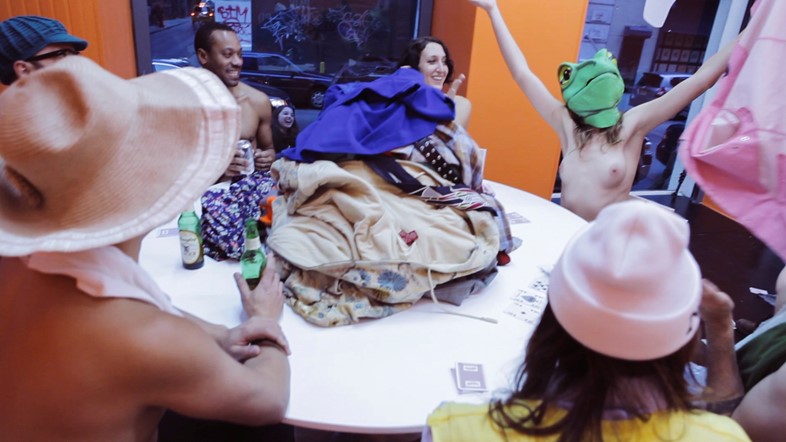
In spite of the therapeutic function, the filming process itself evoked a separate honeymoon period, and its own demise. “The first few months went really well and then it was only as it started to get closer to reality – we weren’t re-enacting, we were just filming ourselves – that it started to feel like a little too much,” Decker continues.
While romantically separated today, the two remain friends. It’s almost unbelievable that Josephine Decker and Zefrey Throwell are still friends, but then their synchronicity is too outstanding not to continue a relationship – romantic or otherwise.
Flames is out in the UK now.
